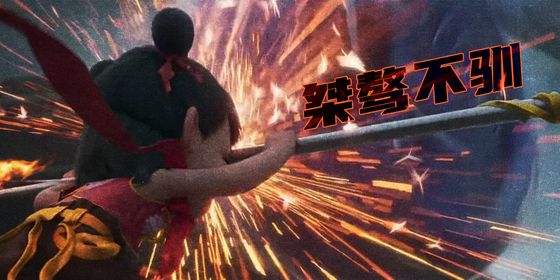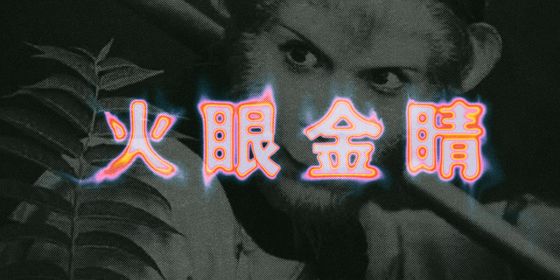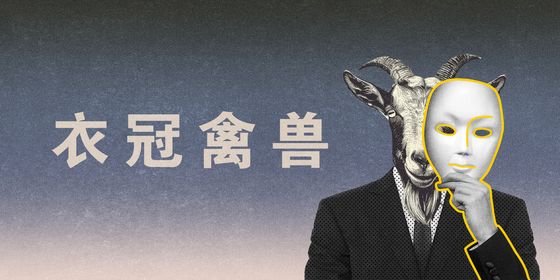What does it mean in Chinese to have a “hole in the heart”?
In the darkest chapter of his signature novel Rickshaw Boy, Chinese author Lao She, via an aged rickshaw driver, delivers a blistering take-down of his title character. “Your heart is good. What use is that?” the old man spits at the happy-go-lucky Xiangzi, who has just lost everything.
In Evan King’s 1945 translation, “heart is good” stood in for Lao She’s idiomatic “好心眼,” but that wasn’t the only appearance of the pesky term 心眼 in the novel. Earlier in the novel, King cumbersomely translated “有心眼” as “the eyes of his heart overlooks nothing,” while Howard Goldblatt’s 2010 edition opted for “good intentions” and “thoughtful” for the two phrases.
Just what is 心眼? In modern conversation, it’s an ambiguous and versatile figure of speech for qualities ranging from one’s intentions to intelligence to character—translators can’t even agree on whether the character 眼 should refer to an “eye” or a “hole” in the heart.
The term’s origin is unclear, but a holey heart has been a metaphor for perception and insight for centuries. In the 16th century novel The Investiture of Gods, Shang dynasty minister Bigan is described as having a 七窍玲珑心 (“exquisite seven-holed heart”) that lets him communicate with various creatures and see through sorcery. The sensitive heroine Lin Daiyu in Dream of the Red Chamber is said to have “a heart with one hole more than Bigan’s” (心比比干多一窍). Most people today can’t aspire to such superhuman smarts, but 心眼 or colloquially, “心眼儿,” continues to pepper conversations under five broad categories of meaning:
Heart, mind
At its most basic, 心眼 is another way of saying “heart.” The phrase “打心眼儿里 (dǎ xīnyǎnr li, ‘from the heart hole’),” means “from the bottom of one’s heart.” For example:
He loves his job with all his heart.
Tā dǎ xīnyǎnr li rè’ài zìjǐ de gōngzuò.
他打心眼儿里热爱自己的工作。
Motive, character
Paired with the adjectives like “good” or “bad,” the heart hole becomes a metaphor for either kindness or malice.
Though he looks stern, his heart is in the right place.
Tā kàn qǐlái yánlì, dàn xǐnyǎnr bú huài.
他看起来严厉,但心眼儿不坏。
I knew that fellow was up to no good!
Wǒ jiù zhīdào zhè jiāhuo méi ān hǎo xīnyǎnr!
我就知道这家伙没安好心眼儿!
Intelligence, wit
心眼 isn’t just a matter of good or bad: It’s also possible to not have a heart hole at all. Like Xiangzi, people who have (有) a 心眼 are smart or savvy, while those who lack (没有/缺) a heart-hole are slow-witted, and may be asked to grow one (“长个心眼儿”) or keep one on hand (“留点心眼儿”). And if someone’s heart-hole is “dead” (死心眼), it means they are single-minded, stubborn, and inflexible.
Smarten up! Don’t get hoodwinked!
Zhǎng diǎnr xīnyǎnr! Bié shàngdàng shòupiàn!
长点儿心眼儿!别上当受骗!
We must be on our guard against this person!
Duì zhè hào rén bìxū liú diǎnr xīnyǎnr!
对这号人必须留点心眼儿!
You can ask for help. Why must you be so stubborn?
Nǐ kěyǐ zhǎorén bāngmáng a, wèishénme zhème sǐxīnyǎnr ne?
你可以找人帮忙啊,为什么这么死心眼儿呢?
Insecurities
Given the above examples, it’s natural to conclude that the more porous the heart, the better. Right? Wrong! If someone is said to have “too many heart holes,” that’s not a compliment: Instead, it means they are oversensitive, sly, or selfish.
He’s takes everything to heart—that’s the trouble with him.
Tā zhège rén de máobìng jiù shì xīnyǎnr tài duō le.
他这个人的毛病就是心眼儿太多了。
Tolerance
Apart from their existence and number, the size of one’s heart holes also matters. To have a “small” or “narrow” 心眼 is to be intolerant, narrow-minded, and petty:
He is narrow-minded and cannot bear being wronged.
Tā xīnyǎnr zhǎi, shòubuliǎo wěiqū.
他心眼儿窄,受不了委屈。
This person is petty, and gets angry easily.
Zhège rén xīnyǎnr xiǎo, róngyì shēngqì.
这个人心眼儿小,容易生气。












